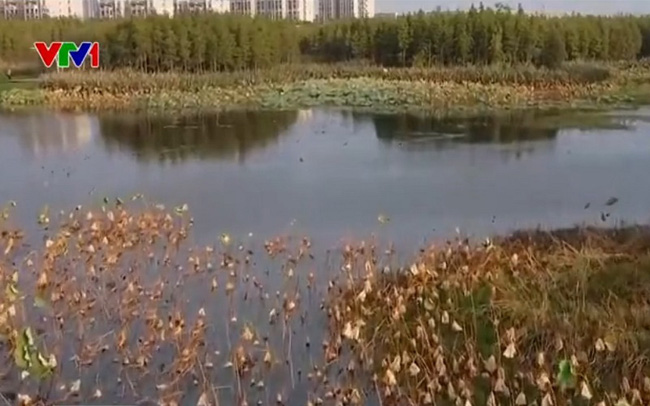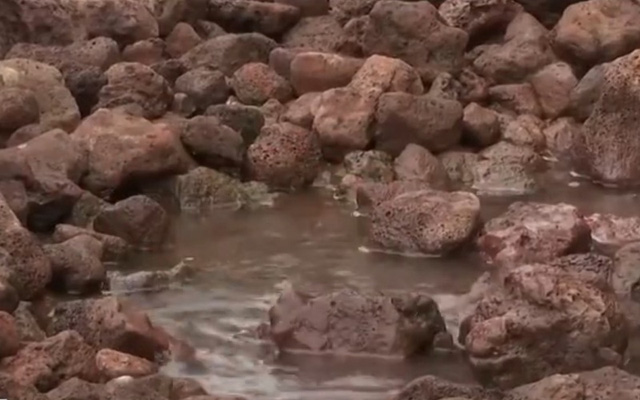
The city of Nanchang, in southern China, is where one can visit a special park called Yuwei - meaning "Fish Tail". Located in a low-lying part of the city, the park was designed with "sponge technology" to help respond to both flooding and drought in the area. In this park, the infrastructure will be able to absorb rainwater from natural sources in the area to regulate water during the flood season. In the dry period, the stored water can be removed and cleaned for use.
Mr. Fang Yang - Project Manager of Yuwei Park said: "This park can store up to 1 million m3 of rain water, helping surrounding areas to be safe during the flood season and avoiding flooding of structures. underground like subway lines because rainwater has no place to escape. Even in the driest period of recent months, plants still survive on water stored below."

"Sponge technology" is being tested widely in China, as the country has suffered from many major natural disasters in recent years, including prolonged droughts and severe floods in many provinces. The developers say this will be an improvement on old-fashioned buildings, which are not suitable for the monsoon climate in Asia and also contribute to more severe damage from natural disasters.
Yu Kongjian - Chief architect of the Yuwei Park project said: "This idea helps to create more space for water sources, helping rivers to restore normal flow, instead of being limited to roads. urban underground pipes - which have no effect on floods, this will be a path to redesigning cities to be smarter, adapting to climate change.
This project is expected to be even more useful, when southern China is experiencing a record drought, with the surface area of Bayang Lake - the largest freshwater lake reduced by 90% in the past 3 months, canceled destroy crops and threaten the livelihoods and food sources of millions of people.